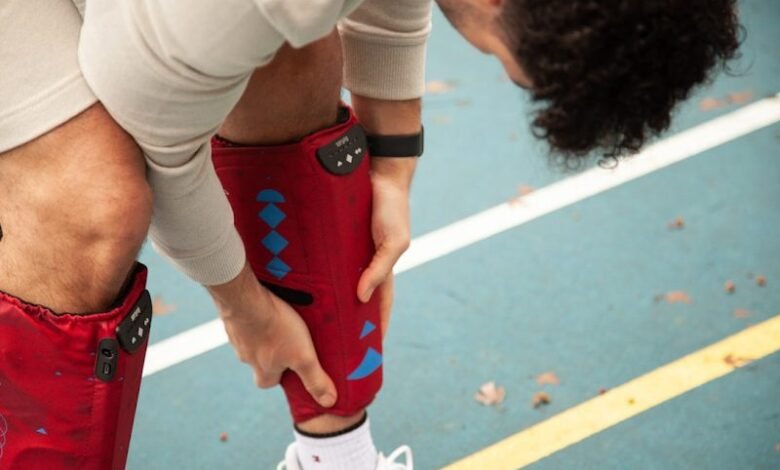
Come on from an accident that has more than waiting for injuries to recovery. From physical trauma to mental distress, the accident can leave profound effects on the body and mind. Focus on recovery involves more than the doctor’s visits. It includes the mentality, support systems and options you make daily. The treatment of each side intentionally allows individuals to improve their chances of strong return.
Giving priority for immediate medical evaluation
After an accident, many people feel exhausted, amazing, or in shock. Even if no blood or pain appears, invisible injuries may develop. Internal bleeding, concussion, and soft tissue damage often remain hidden during the first few hours. Searching for medical attention quickly gives you the best chance to determine these concerns early.
Doctors can perform X -rays or CT scans or navigation assessments to detect problems that you may ignore. These assessments become vital records if the legal procedure is raised later. Some injuries increase without early intervention, which extends the recovery process unnecessarily. Spending time to receive a full examination gives you peace of mind and sets a strong essential line for follow -up care.
Legal guidance supports the healing process
After an accident, questions often appear about error, insurance and compensation. Mobility in this without support creates stress that distracts attention from recovery.
Working with professionals who understand the legal process gives you a space to focus on health. They run timetables, documents and communication so that you do not have to do so. When looking at options, take time to Check your condition options With an experienced lawyer to understand where you stand and what steps that may come after that. An insight into your rights and potential demands protect your financial well -being and ensure you get appropriate care without delay. Your health and your legal standing ties more than most people realize.
Adhere to the described recovery plan
Medical professionals often provide simple on the surface. Comfort for a certain period, full light extension exercises, or taking the medicine on the specified date. The temptation to skip the steps seems strong when daily life requires attention. You want to return to work, school, or parenting routines quickly. However, ignoring these instructions leads to delay in recovery or complications.
Create a daily structure that corresponds to your treatment makes progress smooth. Whether you use an evaluation application or a notebook, follow each step encourages follow -up. If you start to feel better, author the plan unless your doctor says otherwise. It can hide a short explosion of continuous inflammation or fatigue. End the entirely described recovery path to build a strong foundation.
Mental health support has a great effect
Physical wounds are only one aspect of trauma, anxiety, depression and stress after the trauma often develops after serious accidents. These symptoms may not appear for several days or weeks, which facilitates their rejection. However, it affects sleep, appetite, focus and mood. Mental health needs can cause a long -term disorder in the daily function.
Speaking to a therapist or consultant helps to decipher these feelings and provides tools for emotional organization. Support groups bring together people who share similar challenges, and provide health and friendship verification. Even directed or daily meditation can provide clarity. You deserve mental recovery with the same level of care as physical recovery. Make the mind strong so that your body can respond somewhat.
Nutrition and moisture play a greater role than you think
Healing places additional demands on the body. From fixing tissue to reducing inflammation, your system requires more nutrients and fluids. Many people fall into fast food habits or bypass meals because they feel tired or unknown. Unfortunately, poor nutrition slows the repair process.
Focus on rich whole foods Vitamins C D, protein, zinc, omega -3 fatty acids. These nutrients support immune response, cellular repair, and mood balance. Water consumption matters as much. Dehydration leads to headaches, muscle spasms, and fatigue. Keep a bottle of water nearby and sip regularly throughout the day. Intensive food gives you the basic building blocks to recover with strength.
Movement and physiotherapy restore confidence
Standing during the initial recovery is logical, especially when the pain and hardening remains. However, long -term stalemate offers other risks. The muscles weaken, tighten the joints, and fade confidence. Physiotherapy provides an organized method of restoring mobility, balance, and endurance without risk re -transport.
Working with accredited therapists who adjust the procedures on the basis of tolerance of pain and the speed of recovery. A small start still brings benefits. Even walking for five minutes a day enhances blood circulation and energy. Set the achieveable goals every week and celebrate small winnings. Restore the movement renews confidence and reminds you that recovery remains within reach.
Recovery involves more than the healing of broken bones or muscles made from bruises. It requires time, intention and a total approach. By securing medical assessments, adhering to your treatment plan, supporting mental health, maintaining good nutrition, staying aware of your legal rights and tracking your progress, you set the basis for a successful return to health. Every step is important. Every choice is important. With consistency and self -sympathy, you can build momentum towards wellness, physically, mentally and emotionally





